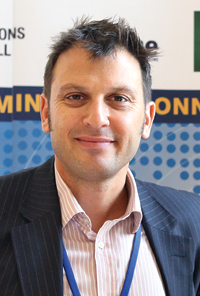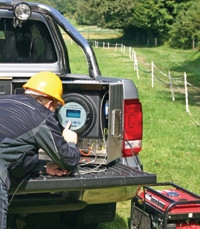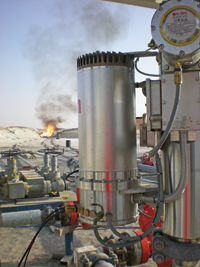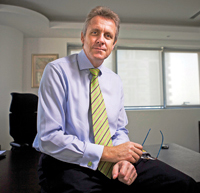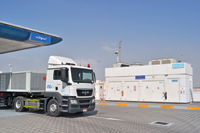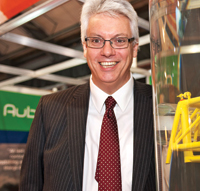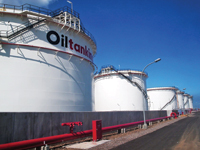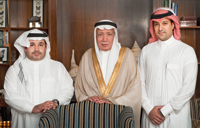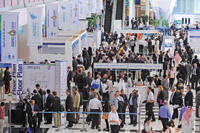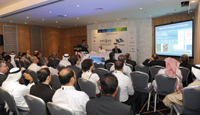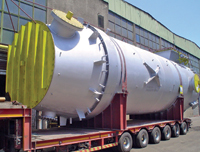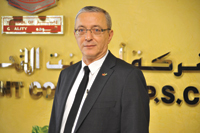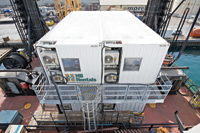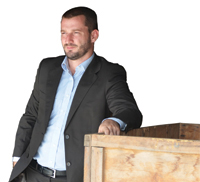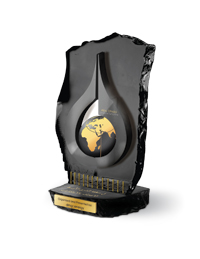
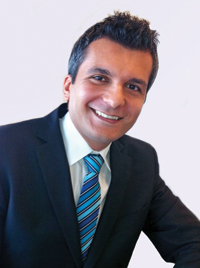 El Haddad ... WFES has a ‘stellar reputation’
El Haddad ... WFES has a ‘stellar reputation’
AS A valuable export commodity and a domestic generator of power, the oil and gas industry plays an important role within the GCC region.
However, growing energy demand in the region is placing greater pressure on the conventional energy sector, and many Middle East countries are turning to renewable sources as a means of meeting the current demand and providing sustainable supplies in the future.
Surging population, increased urbanisation and rapid industrialisation have led to mounting energy consumption levels especially in the GCC, and governments are now taking affirmative action to supplement conventional energy sources.
A 2012 report commissioned by the Renewable Energy Policy Network for the 21st Century shows that global new investment in renewables in 2011 was $257 billion which is an increase of 17 per cent over 2010. Middle East nations are forecast to spend close to $20 billion in the near term on renewable energy projects in order to diversify conventional power generation.
In particular, the efforts of the Abu Dhabi government can be traced back to April 2006 when it announced an aspirational target to increase its share of power from renewable sources to seven per cent by 2020. Its launch of Masdar, the capital’s multi-faceted renewable energy company, in 2006 was the catalyst for the first World Future Energy Summit (WFES) two years later.
The WFES is a key platform in Abu Dhabi’s strategy to contribute to the global challenges of energy security and sustainable growth through collaboration, cooperation and convening. Since its first edition in 2008, which attracted 5,000 participants, the event has inspired global collaboration in sustainable energy on an ever-growing scale. More than 28,000 people are expected to attend the sixth WFES from January 15 to 17 2013, an increase on this year’s event which drew 26,200 participants from 137 countries, and was attended by Chinese Premier Wen Jiabao and the Prime Minister of South Korea, Kim Kwang-sik.
Show director for the WFES, Naji El Haddad says the event’s stellar reputation for bringing governments and businesses together to achieve real solutions is internationally recognised.
“With energy demand challenges increasing every year, more and more governments and their sustainability agencies are realising the importance of the WFES as a forum where world leaders and energy experts gather to address the key issues affecting the future of energy,” says El Haddad.
“It is also encouraging to see the number of entrepreneurs registering as they develop innovative solutions, and we expect the number of projects being showcased at WFES to almost double from 27 last year to over 50 in 2013. Our new initiative of the Government-Business Platform which directly connects government requirements to solution providers will ensure even more positive outcomes for the challenges being faced,” he adds.
The 2013 WFES, hosted by Masdar, is now considered the world’s foremost event for the renewable energy and environment industry.
The summit is expected to attract more than 70 official delegations to WFES 2013, which has chosen ‘Powering the Future of Energy Innovation’ as its theme.
Next year’s WFES will be co-located with the inaugural International Water Summit, also hosted by Masdar, and is the centerpiece of Abu Dhabi Sustainability Week from January 13 to 17, which will draw further world attention.



































































